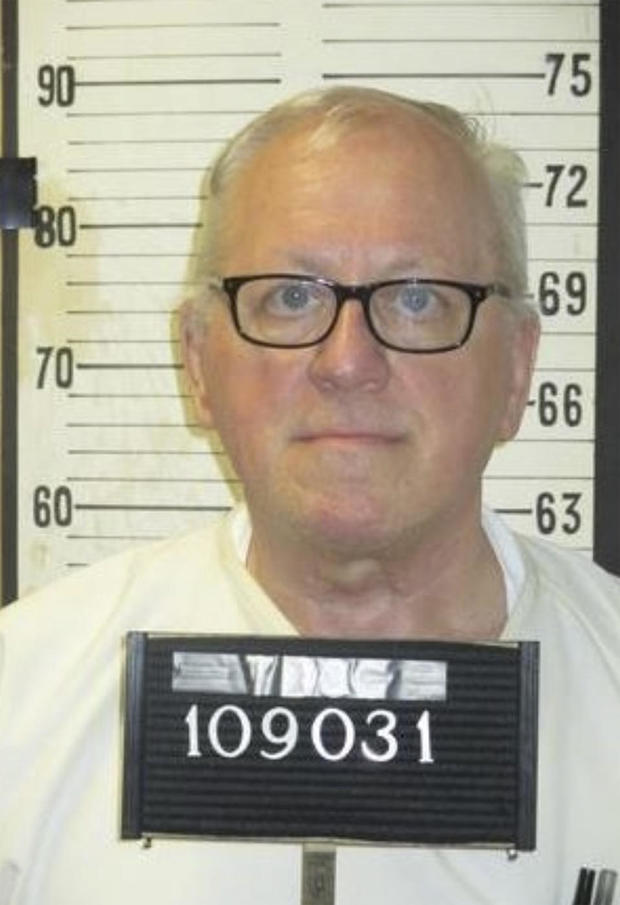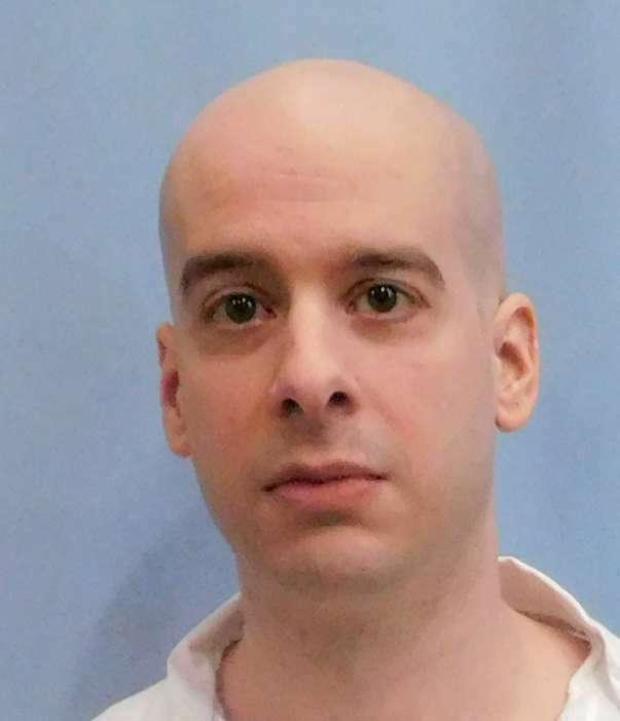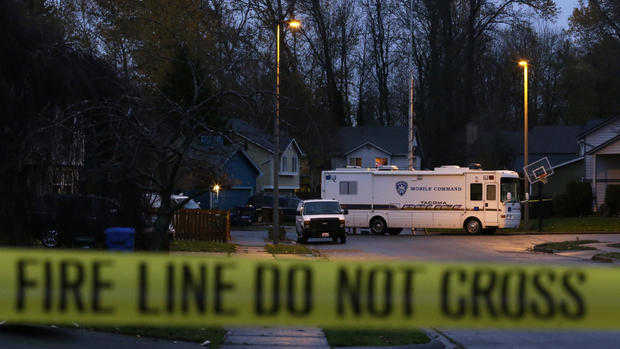A man convicted of killing his wife decades ago at a camping center he managed in Memphis was put to death Thursday in Tennessee. Separately, a man condemned to die for his role in a quadruple killing that followed a dispute over a pickup truck was put to death Thursday evening in Alabama, declining to make any last-minute appeals in the hours preceding his execution.
Sixty-eight-year-old inmate Don Johnson was executed for the 1984 suffocation of his wife, Connie Johnson. He was pronounced dead at 7:37 p.m. after a lethal injection at a maximum-security prison in Nashville.
He had initially blamed his wife’s slaying on a work-release inmate who confessed to helping dispose of the body and who was granted immunity for testifying against Johnson.
Trending News
Johnson became the fourth person executed in Tennessee since August. The last two inmates executed in Tennessee chose the electric chair, saying they believed it offered a quicker and less painful death than the state’s default method of lethal injection.
Johnson had spent half his life on death row and seen three execution dates come and go as his appeals played out in court, including challenges to Tennessee’s lethal injection protocols. The state’s present default method is a three-drug combination that includes the sedative midazolam, which inmates have claimed causes a prolonged and excruciating death. Three more executions are scheduled for later this year in Tennessee.
Gov. Bill Lee announced Tuesday that he would not intervene, following “prayerful and deliberate consideration” of Johnson’s clemency request.
Religious leaders, including the president of the worldwide Seventh-day Adventist Church, to which Johnson belongs, had asked Lee to spare Johnson’s life. Supporters of clemency said Johnson had undergone a religious conversion and cited his Christian ministry to fellow inmates. Johnson is an ordained elder of the church in Nashville.
Connie Johnson’s daughter, Cynthia Vaughn, said she’d forgiven Johnson and joined in the request for clemency. Other relatives had sent a letter to the governor asking that the execution move forward. “I ask you to please bring justice to our family after 35 years of exhausted heartache, sorrow, and emptiness,” wrote the victim’s sister, Margaret Davis.
On Wednesday, the inmate’s attorneys made public a statement from Johnson to his son, stepdaughter and other members of Connie Johnson’s family in which he begged for their forgiveness. “I am truly sorry and if I knew something that I could do to ease your pain I would gladly do it,” Johnson wrote.
Defense attorneys said Thursday that the inmate declined to request a special last meal, instead asking supporters to provide a meal to a homeless person. The Nashville church where the inmate is an ordained elder was collecting grocery gift cards for a meal next week for the homeless and planned a vigil as the execution hour loomed.
Alabama administered a lethal injection Thursday evening to 41-year-old Michael Brandon Samra. Samra was pronounced dead at 7:33 p.m. following a three-drug injection at the state prison at Atmore, authorities said.
Samra and a friend, Mark Duke, were convicted of capital murder in the deaths of Duke’s father, the father’s girlfriend and the woman’s two elementary-age daughters in 1997. The two adults were shot and the children had their throats slit. Evidence showed that Duke planned the killings because he was angry his father wouldn’t let him use his pickup.
In a last statement, Samra made a profession of Christian faith.
“I would like to thank Jesus for everything he has done for me,” Samra said as he lay strapped on a gurney with his arms extended. He ended with the word “amen.”
After drugs began flowing, Samra went still and his chest heaved three times. He took a few deep breaths and his head moved slightly. Then an officer checked to see if he was still conscious. A few moments later, Samra’s hands curled inward, his chest moved like he was taking some breaths and his mouth fell slightly agape.
The execution procedure began about an hour after the scheduled 6 p.m. start time, and Prison Commissioner Jeff Dunn said there was no particular reason for the delay. “There were no issues that I was aware of,” Dunn said in a statement.
He also released a statement from the families of the victims. They thanked the police and the community for support and said: “This has been a painful journey. Today justice was carried out.”
Seven relatives of the victims had planned to witness the lethal injection, Horton said, but none of Samra’s family wanted to attend. The inmate had a final phone call with his father on Wednesday, he said.
The execution came hours after Samra met with friends and a spiritual adviser, prison spokesman Bob Horton said.
Steven Sears, a lawyer for Samra, said he received a clemency denial from Gov. Kay Ivey’s office about eight hours before the scheduled execution at the state prison in Atmore. Ivey’s staff did not respond to an email seeking comment.
Though Duke and Samra were both originally convicted of capital murder and sentenced to death, Duke’s sentence was overturned because he was 16 at the time, and the Supreme Court later banned executing inmates younger than 18 at the time of their crimes.
Samra was 19 at the time and asked the U.S. Supreme Court to delay his execution while the Kentucky Supreme Court considers whether anyone younger than 21 at the time of a crime should be put to death, but the justices refused.
Samra’s request for a gubernatorial reprieve was based on similar grounds. It also said Duke was more to blame for the killings than Samra.
Court documents show Duke and Samra killed the four at a home in Pelham, a Birmingham suburb, on March 23, 1997. The day before, Mark Duke and his father, Randy Duke, got into a heated argument over the man’s refusal to let the son borrow his truck.
After enlisting friends to help, Mark Duke killed his father with a gunshot to the face and Samra shot the man’s girlfriend, Dedra Mims Hunt, who survived and fled to another part of the house.
Mark Duke found the woman in a bathroom and shot her, court documents show. Out of bullets, he then used a knife to slit the throat of the woman’s 6-year-old daughter, Chelisa Hunt. Samra cut the throat of the woman’s 7-year-old daughter, Chelsea Hunt, as she begged for mercy while Duke held the child down.
In a letter to the governor seeking mercy for the inmate, Samra’s lawyer had said his client confessed to the slayings, expressed remorse and participated only at Mark Duke’s request.
Two other men who were teenage friends of Samra and Mark Duke at the time of the killings served prison sentences for lesser roles. David Layne Collums and Michael Lafayette Ellison, both now 39, were accused of helping plan and cover up the killings.




